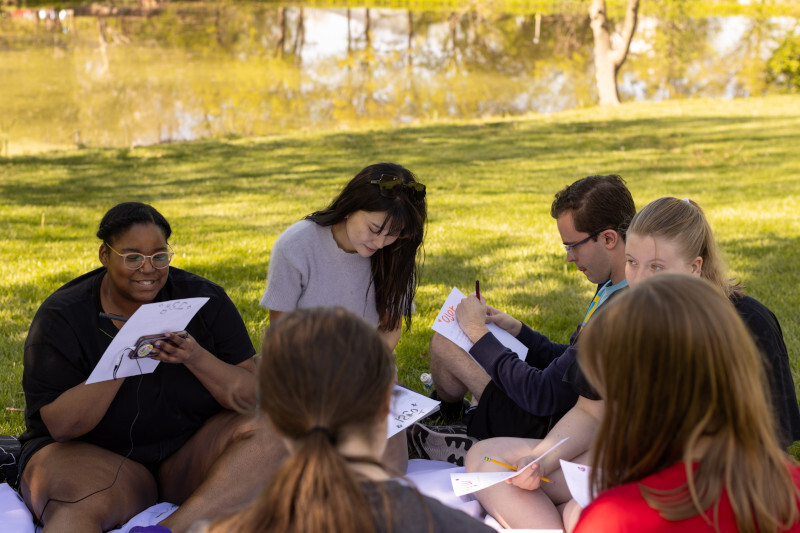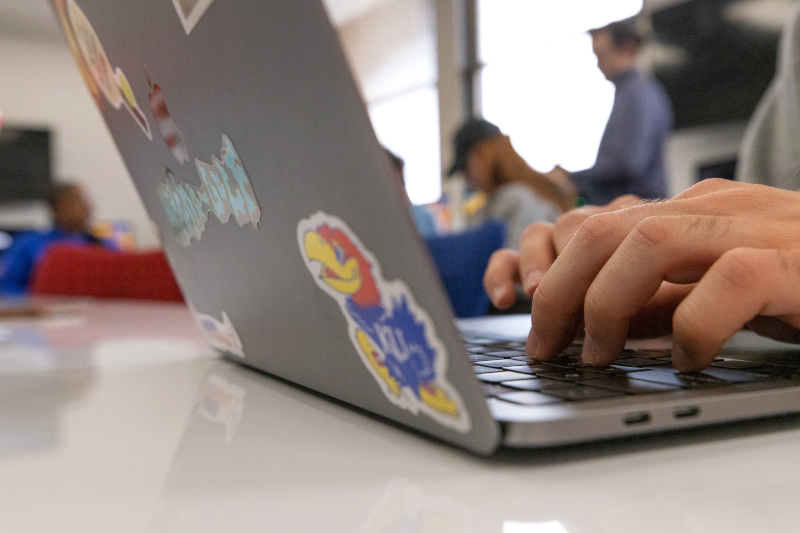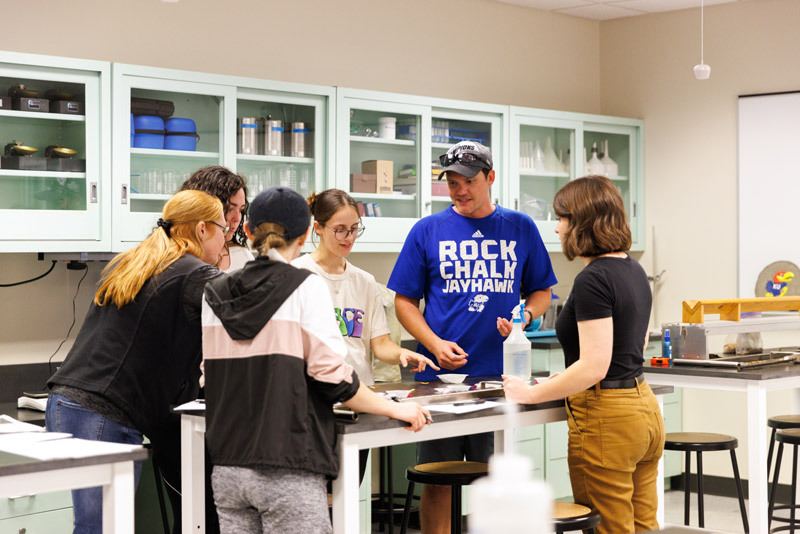
American Sign Language (ASL) and Deaf Studies
The Bachelor of Arts (BA) and Bachelor of General Studies (BGS) degrees in American Sign Language (ASL) and Deaf Studies, as well as the Undergraduate Certificate in ASL/English Interpreting available to degree-seeking students, are designed for students with ASL 4 fluency or equivalent who wish to deepen their knowledge of ASL and the diverse experiences of Deaf communities.
Two graduate certificates are also available: ASL/English Interpreting, and Deaf Studies and Social Justice.
These degree completion programs are ideally paired with a second major and provide a strong academic foundation that complements careers in education, social services, healthcare, speech-language pathology, interpreting, and other fields that involve direct engagement with Deaf individuals.
Students explore topics such as intersectionality in Deaf communities, social justice, allyship, and issues in Deaf education. Advanced ASL coursework supports the development of cognitive academic language proficiency—going beyond conversational use to more complex and nuanced language skills.
Interpreting Pathway
The bachelor’s degree in ASL and Deaf Studies is not an interpreter training program. While it provides essential language and cultural foundations, it does not independently prepare students for professional interpreting.
Students who wish to pursue a career in interpreting should also complete the Undergraduate Certificate in ASL/English Interpreting, followed by the Graduate Certificate in ASL/English Interpreting. These certificate programs offer targeted skill development, guided practice, and supervised field experience in preparation for national certification and state credentialing. This combination creates a comprehensive pathway for students preparing to become ASL/English interpreters and is especially well-suited for students who are newer to ASL and the Deaf communities.
Students who already possess advanced ASL fluency and experience may be eligible to begin directly in the Undergraduate or Graduate Certificate programs. In these cases, a proficiency screening is required to determine appropriate placement.
Career Outlook
ASL-fluent professionals and interpreters are needed in a variety of fields in the public and private sectors. The greatest demand is in the field of education. Job postings continue to increase for special education teachers from preschool through secondary, ESL teachers, teaching assistants, behavior interventionists, intervention specialists, and paraprofessionals.
Additional Potential Careers
Law/Public Service
Social work
Medicine
Human resources
Counseling
Customer service
Interpreting/translating
Education
Career data
Helpful information for positions requiring an ASL/Deaf Studies degree or certificate*
Career statistics
In addition, opportunities exist for ASL-fluent professionals and interpreters and those with a heightened understanding of Deaf culture and social justice. Individuals with ASL proficiency combined with other professional skills/degrees are needed in a wide variety of fields.
*Source: Lightcast. The career information provided is not specific to the KU program or its graduates. There is no guarantee of obtaining these positions.


